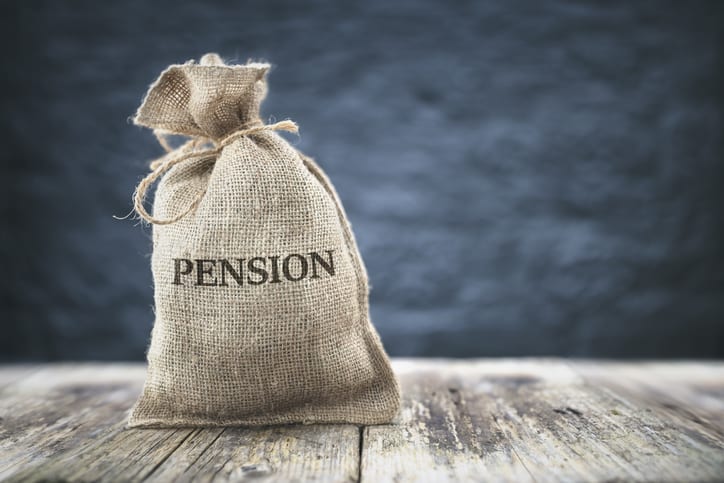Pensions and divorce – Establishing a valuable asset for your future
When you’re going through a divorce, it’s easy to get bogged down in short-term issues and lose sight of your long-term ambitions. It can be a stressful, often emotionally exhausting time and the last thing you are likely to think about is your longer term/future income.
In particular, when assessing your future sources of income, one of the main areas you need to think about is pensions. When it comes to divorce settlements and the assets that need to be shared, many people tend to overlook pensions. Yet, they’re always included in any divorce settlement and most couples will have access to both State and workplace pensions. In fact, in many cases, pensions are some of the most valuable assets involved in a divorce settlement, after property.

Choosing the best option
It is essential to bear in mind that you’ll depend on your pension fund for income once you retire. If you were the partner who looked after your children and had a stop-start career, you probably won’t have a significant pension fund. So you need to reach an agreement on pensions in your divorce settlement that protects your long-term financial security.
This is when you need to talk to an independent financial advisor who can talk you through the potential options, help you see the pros and cons of each one in terms of your future income, and support you in coming to the best decision.
What are the options?
When it comes to pensions in a divorce settlement, you have a number of options to choose from. You’ll need to agree with your ex-spouse which pension option you’re taking before you reach any final settlement, so you should include them in any negotiations from the outset. When you agree on the approach you’re taking, your solicitor will draw up a Settlement of Court Order and this will need to be agreed by the divorce court. Once it’s agreed, you can’t make any more applications to use the pension as an asset in the divorce settlement.
A reliable and Independent Financial Adviser will help you agree with your ex-spouse on which of these options you’re going to choose:
Sharing
This represents a clean break and means that you and your ex-spouse will have access to an agreed percentage of the pension fund or benefits. You each have control over your portion of the pension, so you can decide to leave it with the existing provider, or transfer it to a different one.
Offsetting
In this option, you can balance the value of the pension against any other shared assets, such as property, savings or vehicles. For example, you may decide that you want a greater share in a property and a smaller share of a pension.
Pension Attachment Order
If you decide to opt for a pension attachment order, this means that when you start to draw retirement benefits from your pension, your ex-spouse will receive an agreed share of these benefits.
Deferred lump sum or deferred pension sharing order
In this case, when you or your ex-partner start to draw a pension, the other partner receives a lump sum. This may be useful if there is a large age difference between you and your ex-partner. This option is not available if you live in Scotland.
Deciding on the best option
Going through a divorce is one of the most stressful situations anyone can experience. Trying to find your way through the complex pension issues and the multiple options available during a divorce settlement without objective professional advice will only add to that stress. Each option will have its own advantages and disadvantages, and these will depend on your personal circumstances, so there is no definitive route, and the final decision must be agreeable to both you and your ex-spouse. This is why it is vital to involve not just your solicitor but also a financial adviser from the outset. Having access to their combined advice throughout the process will help you get the best possible outcome based on your future plans.
Talk to us
This is why you should always talk to a reliable independent adviser like us when it comes to your divorce settlement.
We will help you assess the various options and decide which one offers you the best financial future, based on your personal short-term and long-term needs. We’ll also work closely with your solicitor to guide you through the entire divorce settlement and ensure you get the fairest outcome.
To find out more about how we can help you achieve the best possible solution from what can be a difficult situation, check out our webinar on Pensions and Divorce.
Understanding the rising impact of Inheritance Tax
Exploring strategies to secure your family’s financial future The amount of Inheritance Tax (IHT) paid [...]
Retirement readiness in your 50s
Now is the time to make sure you know how much you need to save [...]
Planning your path to a fulfilling retirement
Are your finances on the right track as you approach this new chapter? As we [...]
Maximising returns
The power of reinvesting dividends for long-term growth Dividends represent the portion of a company’s [...]
Is it time to evaluate your financial landscape?
Financial strategies are not immune to the impacts of life’s changes As the new year [...]
How much financial security do you need for a happy retirement?
Financial status plays a significant role in retirement happiness Retirement is a time many look [...]







